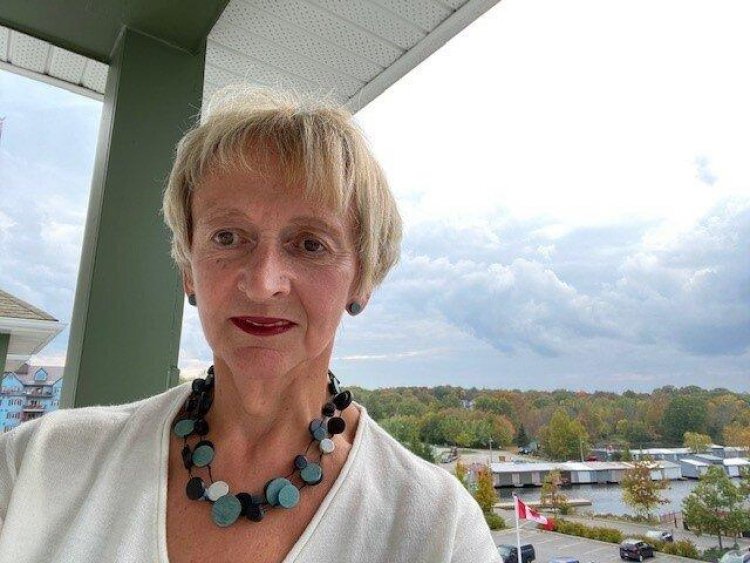Getting ‘ghosted’ by Canada: Why those trying to reach immigration officials say no one is picking up the phone
In January, Jessica Radin was thrilled when she received an email from Canada’s Immigration Department that her permanent-residence confirmation paper was ready for download on the government portal.She immediately logged on but only to discover that the PDF file was blank and the document was nowhere to be found. Since then, she and her husband, her sponsor, have called the immigration toll-free number more than 20 times to report the missing paper.The phone tree usually goes like this: They call the 1-888 number; they get asked by an automated voice to key in her client and file numbers; they then make the selection for information about permanent residency, before they’re placed in the queue to speak to an agent.“It’d then say, ‘We’re experiencing unusually high call volumes right now, and we cannot respond to your inquiry. We’re sorry for the inconvenience,’” said the American, who came here from Boston to pursue her postgraduate studies in Hamilton in 2008 and has two Canadian-born children.“The system doesn’t even give us an option to sit on hold, it just hangs up on us … We’re being ghosted. This is the essence of being ghosted. I’m incredibly frustrated. It’s incredibly anxiety-producing.”Radin is not alone. Many immigration applicants say they’re frustrated by what some call the information “blackout,” and they’re taking their complaints to social media and online forums.“We are stuck and there is no update from this visa office. People are crying, and no one is paying any attention,” one tweeted recently.“It’s been a total nightmare to have our lives in limbo, can’t get any answers, they don’t answer any of my husband’s webforms,” posted a woman on a Facebook page devoted to advocating for Canadians trying to sponsor their spouses.Another on Instagram wrote: “Canada might be a great country but behind the scene is something else and people like us (are) always kept on the dark side of the light. Please whenever you get a chance just enlighten on my scenario … Should I waste my life in chasing this wild goose or in insecurity?”Since the pandemic hit in March 2020, operational disruptions and policy changes have contributed to an upsurge of inquiries to the Immigration Department, which has also been hit by Afghan resettlement inquiries since August after the fall of Kabul to the Taliban.According to the latest immigration data, in the 2021-22 fiscal year, the department has received an average of 140,530 calls a week to its toll-free number, up from 85,625 the year before. Over the same period, the number of webform submissions it received has gone up to 34,400 a week from 29,277, with case inquiries from MPs and senators also skyrocketing to a weekly average of 4,711 from 2,616.“Our continued priority is to provide timely service to clients by moving toward a more integrated, modernized and centralized working environment in order to help speed up application processing,” said department spokesperson Jeffrey MacDonald.“We understand that clients want timely access to personalized support and the department is committed to improving its level of service at the Client Support Centre.” NDP immigration critic Jenny Kwan said MPs’ offices have been overwhelmed by constituents seeking help in their cases and waiting to get an update from the department. And it doesn’t help that MPs and senators have been restricted by the government to a maximum five immigration case inquiries a day since the end of November, she said. “MP offices across the political spectrum are dealing with an unprecedented number of case files due to the very backlogs,” said Kwan. “Limiting their ability to serve their constituents is unacceptable.”Christine Park, a permanent resident from South Korea, submitted her citizenship application and paid the $630 fee in February 2020, just before the lockdowns began. Understanding the chaos caused by the pandemic, she waited patiently to be scheduled for her citizenship exam.She passed the test in October but has been waiting for an online oath ceremony since then. She has reached out to the immigration department by email and phone for updates, but would only receive a generic response that referred her to links on the department website that were irrelevant to her inquiry.Park, a Toronto insurance broker, finds the lack of service unprofessional. “It’s a basic rule that you keep your client informed. If you are not able to provide the information right away, you tell them you will look it up and get back to them,” said Park, who was notified this week after the Star’s inquiry that her citizenship ceremony is scheduled on March 9.“If I don’t do my job and take care of my clients, they can go to our licensing body to make a formal complaint. You have to be professional and accountable.”For almost a year, Torontonian Madeleine Donahue and her church group have been trying to get an update about the permanent residence application of Syrian Khaled Almilaji and his wife, who were granted asy


In January, Jessica Radin was thrilled when she received an email from Canada’s Immigration Department that her permanent-residence confirmation paper was ready for download on the government portal.
She immediately logged on but only to discover that the PDF file was blank and the document was nowhere to be found. Since then, she and her husband, her sponsor, have called the immigration toll-free number more than 20 times to report the missing paper.
The phone tree usually goes like this: They call the 1-888 number; they get asked by an automated voice to key in her client and file numbers; they then make the selection for information about permanent residency, before they’re placed in the queue to speak to an agent.
“It’d then say, ‘We’re experiencing unusually high call volumes right now, and we cannot respond to your inquiry. We’re sorry for the inconvenience,’” said the American, who came here from Boston to pursue her postgraduate studies in Hamilton in 2008 and has two Canadian-born children.
“The system doesn’t even give us an option to sit on hold, it just hangs up on us … We’re being ghosted. This is the essence of being ghosted. I’m incredibly frustrated. It’s incredibly anxiety-producing.”
Radin is not alone.
Many immigration applicants say they’re frustrated by what some call the information “blackout,” and they’re taking their complaints to social media and online forums.
“We are stuck and there is no update from this visa office. People are crying, and no one is paying any attention,” one tweeted recently.
“It’s been a total nightmare to have our lives in limbo, can’t get any answers, they don’t answer any of my husband’s webforms,” posted a woman on a Facebook page devoted to advocating for Canadians trying to sponsor their spouses.
Another on Instagram wrote: “Canada might be a great country but behind the scene is something else and people like us (are) always kept on the dark side of the light. Please whenever you get a chance just enlighten on my scenario … Should I waste my life in chasing this wild goose or in insecurity?”
Since the pandemic hit in March 2020, operational disruptions and policy changes have contributed to an upsurge of inquiries to the Immigration Department, which has also been hit by Afghan resettlement inquiries since August after the fall of Kabul to the Taliban.
According to the latest immigration data, in the 2021-22 fiscal year, the department has received an average of 140,530 calls a week to its toll-free number, up from 85,625 the year before.
Over the same period, the number of webform submissions it received has gone up to 34,400 a week from 29,277, with case inquiries from MPs and senators also skyrocketing to a weekly average of 4,711 from 2,616.
“Our continued priority is to provide timely service to clients by moving toward a more integrated, modernized and centralized working environment in order to help speed up application processing,” said department spokesperson Jeffrey MacDonald.
“We understand that clients want timely access to personalized support and the department is committed to improving its level of service at the Client Support Centre.”
NDP immigration critic Jenny Kwan said MPs’ offices have been overwhelmed by constituents seeking help in their cases and waiting to get an update from the department.
And it doesn’t help that MPs and senators have been restricted by the government to a maximum five immigration case inquiries a day since the end of November, she said.
“MP offices across the political spectrum are dealing with an unprecedented number of case files due to the very backlogs,” said Kwan. “Limiting their ability to serve their constituents is unacceptable.”
Christine Park, a permanent resident from South Korea, submitted her citizenship application and paid the $630 fee in February 2020, just before the lockdowns began. Understanding the chaos caused by the pandemic, she waited patiently to be scheduled for her citizenship exam.
She passed the test in October but has been waiting for an online oath ceremony since then. She has reached out to the immigration department by email and phone for updates, but would only receive a generic response that referred her to links on the department website that were irrelevant to her inquiry.
Park, a Toronto insurance broker, finds the lack of service unprofessional. “It’s a basic rule that you keep your client informed. If you are not able to provide the information right away, you tell them you will look it up and get back to them,” said Park, who was notified this week after the Star’s inquiry that her citizenship ceremony is scheduled on March 9.
“If I don’t do my job and take care of my clients, they can go to our licensing body to make a formal complaint. You have to be professional and accountable.”
For almost a year, Torontonian Madeleine Donahue and her church group have been trying to get an update about the permanent residence application of Syrian Khaled Almilaji and his wife, who were granted asylum in Canada three years ago.
“We are looking for a substantive response, not an auto-generated response. Canada is a country built on immigrants and refugees, so we need to treat them in a much better fashion,” said Donahue, a retired lawyer.
“This has everything to do with customer service. It has to do with compassion. People need to get on with their lives. They need to know what’s happening. Literally, the whole system looks like a big black hole now.”
Nicholas Keung is a Toronto-based reporter covering immigration for the Star. Follow him on Twitter: @nkeung















:quality(85):upscale()/2024/11/27/891/n/1922398/123acea767477facdac4d4.08554212_.jpg)



:quality(85):upscale()/2023/10/20/771/n/1922283/f8d8bd596532b936709313.07127236_.jpg)
